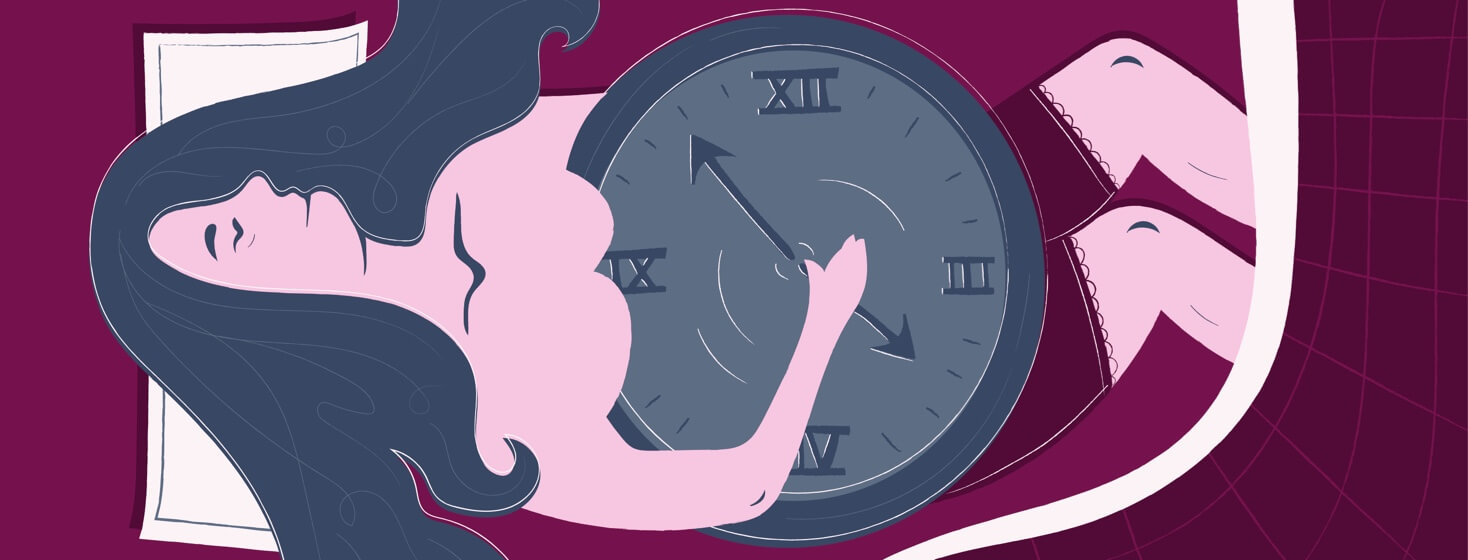5 Ways to Support Circadian Rhythms When You Have Advanced Breast Cancer
Recently, a research team at Penn Medicine published a report identifying the underlying reasons why chronic disruptions of circadian rhythms can lead to increased risks for tumor growth in people with cancer.1
The scientists also made a related discovery, that one particular treatment for breast cancer, Palbociclib, was found to be far more effective when taken in the morning than at night time. This strategy, known as chronotherapy uses the timing of a drug’s delivery to the benefit of the patient by potentially inhibiting tumor growth. These findings show promise because they suggest the drug dosages, when delivered in the morning, could be reduced while still being effective. The outcome of this strategy could mean fewer adverse side effects.
What are circadian rhythms?
Our circadian system, composed of (ideally) consistent periods of sleep and alertness is ruled by a single main body clock.
This circadian system manager regulates the unique and individual rhythms of all of our organs, cells, and biological processes using time, behavioral and environmental cues (such as meal times and light exposure).
In a sense, all circadian rhythms “synchronize” to the main body clock. It’s one chief way we maintain homeostasis, the healthy biological balance of our systems. These rhythms together guide a broad spectrum of functions that include cell growth, metabolism, division, and genetic repair.
Not surprisingly, these are also the critical functions we need to monitor when cancer arrives as a diagnosis. You can learn more about the critical links between circadian rhythms and cancer in “Cancer and Circadian Rhythms: The Basics.”
Timing really is everything
When our biological clocks develop functional abnormalities, this results in a dysfunctional circadian system. When someone develops cancer, the circadian system requires special attention and management to help the body fight the disease. In addition, strong circadian rhythms are going to help bolster the immune system and make treatments more effective.
But how does someone with advanced breast cancer strengthen their circadian rhythms?
There are five choices you can make to support your circadian system. Some problems with cancer-related circadian dysfunction may be out of our hands. However, we make daily choices that could be beneficial. Most of them have to do with the way we time the activities of our days and nights and include prioritizing good sleep in order to prevent the spread of cancer.
Carefully time your sleep/wake schedule
When we stay up too late, sleep too long, or take unscheduled naps, we disrupt our rhythms. Sticking to a regular bedtime and rise time, and only taking short naps are two ways to keep your rhythms in check.
Avoid major schedule shifts
Jet lag from traveling across time zones can compromise the circadian system. So can working night or graveyard shifts.
If you can avoid continental or overseas travel, it’s worth it to maintain a healthy circadian system. You may need to take some time away from jobs that disrupt your circadian rhythms (or at least ask for day shifts, if possible, and cut back on travel).
Caregivers of young children, sick or disabled family members or aging parents may also experience a kind of jet lag caused by nighttime disruptions, which can also lead to sleep deprivation. If you’re a caregiver, find some help from loved ones or services at night so you can get in a full seven to eight hours of uninterrupted sleep.
Expose yourself to morning light
Light exposure in the morning essentially cues your body to start its day and stabilizes your rhythms. We are meant to sleep in the darkness and be active during the day, after all.
You can get an effective circadian reset by exposing yourself to 20 minutes of sunlight (or multispectrum light from a lightbox) first thing in the morning. This can also help reduce vitamin D deficiency and improve a flagging energy level or depressed mood.
Practice circadian strengthening behaviors
Eating and exercise also help establish strong circadian rhythms. Eating breakfast, lunch, dinner, and small snacks on a consistent schedule can influence the rhythms of your digestive and immune systems in a positive way.
Exercising, especially earlier in the day, can also establish a strong rhythm. It doesn’t need to be much: walking or yoga may be all you need to keep your body’s rhythms in balance.
Ask your oncologist about chemo timing
A carefully timed chemotherapy regimen is recommended to improve its effectiveness against tumor growth. If you find your chemo is being scheduled in the afternoon, talk to your doctor about moving it to the mornings.

Join the conversation